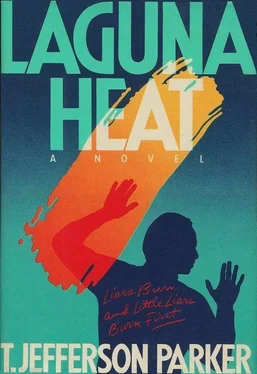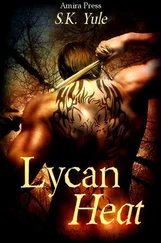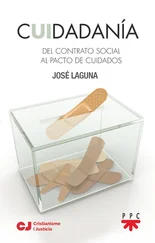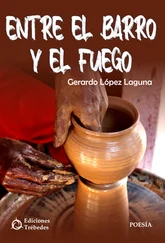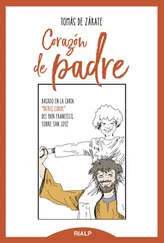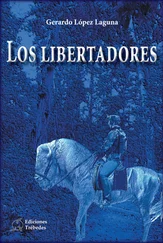“Sounds pretty farfetched to me,” he said. Years of experience had taught Shephard that the best antidote for stupidity was silence. He waited and Rubio grunted again, but with less conviction. “You’re not kidding?”
“I’m not kidding, Frank, buddy. And this isn’t my idea of a fun Sunday. Give me your father’s address. How much longer do I have to sit here and beg you to help me save his life?”
Another long pause, then: “Maybe you’re not who you say you are. How do I know you’re not the one who’s after him?”
“Francis, I’m a detective. My badge number is two-seven-one-eight, my partner is Carl Pavlik, and you can call him at the station right now to check me out. I’m demanding your help. And I’m telling you, the more time you waste, the sorrier you might be.”
“It’s called... Ross Manor. He’s... in a nursing home, a very good one, though. Ross Street in Santa Ana, it’s in the book. The director is Claire Bailey. I—”
“Don’t even think of going out there. Stay put and wait for my call.”
When Shephard heard the woman’s voice again, he realized Rubio was speaking under pressure. “Maybe we could bring him back here,” he said quietly.
“You might have to.” Through the line, Shephard heard a door slam.
“I can do that,” Rubio said finally. In the background, the woman’s voice barked impatiently. “I can at least goddamned do that much.”
Wade had disappeared down the hall. When he came back a few minutes later, with his white suit hanging on him and his eyes remote in thought, he gave Shephard the least convincing smile he’d seen in thirty years. Shephard had never seen him so dispirited, as if something inside him had slowed. Even his voice was brittle. They agreed — though Wade argued until his arguments made no sense — that he would leave town. “And what do you plan to do, Tommy?”
“I don’t know yet. I’ve got to get to Francis Rubio. Get him out of Santa Ana for a while. Take a vacation, pop. Let your assistant deliver the sermon next week. Your ratings will soar when you get back.”
His father smiled feebly, his eyes still gazing inward, lost on some solitary vision. He brought a .38 snubnose from his coat pocket, and a box of ammunition. “Don’t look at me like I’m a helpless old man,” he said finally. “I can still take care of myself. I think I’ll go down to Mexico for a few days. See the hospital site. I’ll leave you a note, here on the table, when I leave.” He stood up, hugged his son, and walked down the hallway toward his bedroom.
“Dad, your toothpaste is in the refrigerator.”
The LaVerda carried him out Laguna Canyon Road, onto Interstate 5, and through Irvine, Tustin, into Santa Ana. The wind continued unabated, casting him from one lane to the next without warning, stinging his face with sand. At Irvine Boulevard he angled to the off ramp, caught the green light, and headed downtown. A tumbleweed, strangely out of context in the city, rolled across the street in front of him and ran up against a chain-link fence. The elm trees that lined Ross Street tossed in the wind while two children on skateboards held out their coats to harness a free ride through the darkness.
Ross Manor was a converted Victorian-style home with a sprawling green lawn studded with empty white chairs. As Shephard pulled his motorcycle to the curb, he noted that two old men were sitting on the wide porch, facing each other, rocking slowly in the porch light. They eyed him silently as he came toward them.
Inside, he faced a large, hotel-style desk, behind which an elderly woman sat knitting. Not far in front of her was a television set with the volume turned up. She looked at him through thick glasses, put down her needles and yarn, and stood up. Her badge said Claire Bailey.
“Miss Bailey, I’m Tom Shephard. I’d like to see Francis Rubio.”
The woman turned down the volume on the TV, and when the music dissipated, Ross Manor lapsed into silence.
“I’m the director,” she said, pulling a sweater around her thin neck. “Francis Rubio?”
“Please.”
She checked a ledger of some kind. “The former judge is with his attorney right now,” she said with polite firmness. “He asked me to let them conduct some personal business undisturbed.”
There was a giddy swirl in Shephard’s stomach. Business at nine o’clock?
“Mr. Rubio asked you, or the attorney?” He smiled, praying it didn’t look false, as he scanned the ledger for a room number. Nothing but orange yarn and blue needles; Claire Bailey had set her knitting on the book.
“The attorney,” she said. “His new attorney, in fact.”
To hell with the Santa Ana police, Shephard thought. He brought out his badge. “Claire, I’m a policeman and I must see Francis immediately. Please, it’s extremely important.” When she hesitated, he lifted his coat away and exposed the Python. Her eyes widened and she stepped back.
“Two-oh-six.”
Shephard looked to his right, then to his left: two stairways leading up in Victorian symmetry.
“It’s in the middle of floor two,” she said hurriedly. “Take either one. The room is right in the middle of the hallway.”
Shephard chose the right. His footsteps echoed in the silence of Ross Manor, the click of shoes on wood. Halfway up, he heard a door close. Then footsteps away from his direction, deliberate, unhurried. They found the stairs and began down.
A faded green runner split the hallway in half. The narrow passage was lit by a lamp fastened to the ceiling midway, emitting a dull yellow glow that seemed to come more from the polished wood of the hallway than the bulb. There was a smell of disinfectant and old bedding. Odd numbers on his left and even on his right. Somewhere, a TV droned. Outside 206, he tried the knob and found it locked. Downstairs, a door slammed.
Then a muffled thrashing from inside the room, followed by muted groans, as if someone were screaming from under water.
Shephard pushed off from the wall behind him, aiming his shoulder at the door. He smashed against the old wood, a solid, bone-jarring collision that sent a wide throb of pain through his back and stopped him as decisively as if he had hit cement. The door shuddered and held. He charged again, this time with his other side, and again the thick wood punished him. Inside he could hear a high-pitched popping noise, then a hiss followed by splattering. The muffled groans had turned to thick, choked yelps. Against the wall again, Shephard pushed off and hurled himself again. He hit, rebounded in a shudder of pain, and watched the door swing open slowly before him.
Smoke and water pelted him from inside. Flames ate upward from the bed, growing from the white blanket toward the ceiling. A sprinkler showered the room, the water hissing violently as it streamed down on the fiery bed. He picked up a chair and threw it through the window. Under the flaming cover Shephard saw movement, a stifled struggling that sent sparks popping to the floor. The yelping sounded desperate, abandoned. With one quick movement that sent a puff of heat into his face, Shephard grabbed the end of the bedspread and flung it into the middle of the floor. The covers below, body-shaped, shook and trembled. He gathered them up and caught a glimpse of the man bundled underneath as he threw them down with the bedspread and trampled the heap. The sprinkler began to do its work. The sparks popped up, the water showered down with a fierce hissing. Shephard stuck his foot into the cooling stream.
When the fire on the floor seemed dead, he moved to the bed and looked down on the man whose quivering legs and arms were tied snugly to the railings with the strings built into his pajamas. The white feet continued to thud against the mattress. His arms were tied in place, but his hands clutched at the side of the bed, the knuckles purple with blood. And above the wide strips of tape that mummified the lower half of his face, two terrified eyes stared upward. Droplets of water splattered onto his head. Shephard moved his hands over the body, and his voice sounded high and foreign as he told the man that he was all right, buddy, chum, you’re going to be all right, Mr. Rubio, you’re going to be all right. Under his hands, Rubio’s withered body was miraculously cool.
Читать дальше
